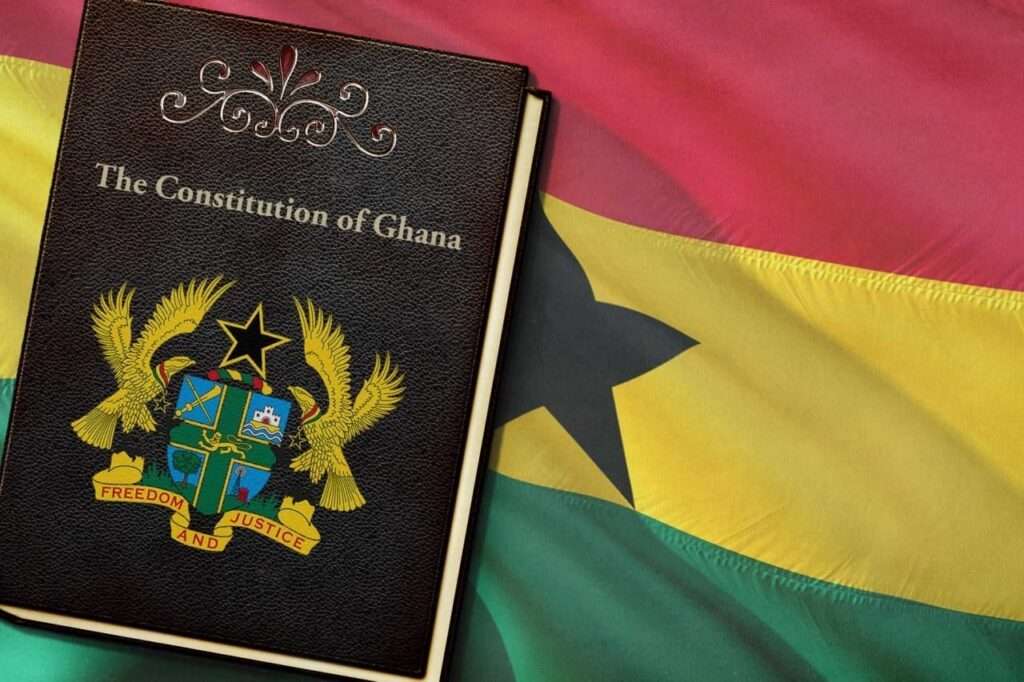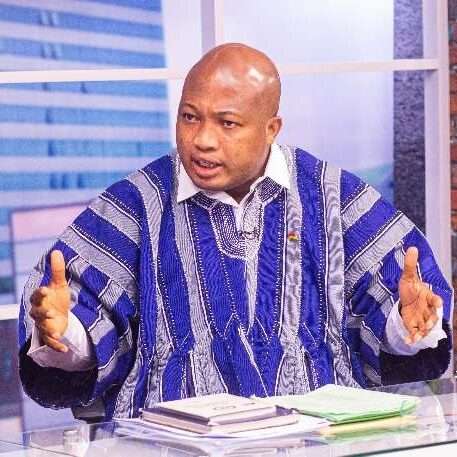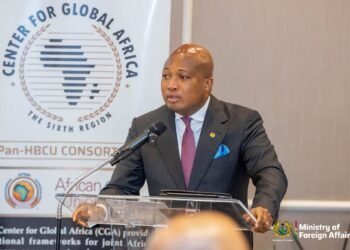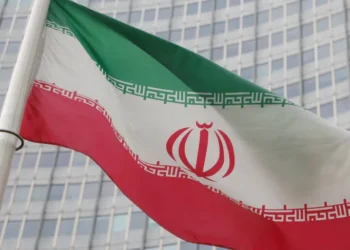The deportee agreement between Ghana and the United States has triggered a fierce political storm, with the Minority in Parliament accusing the John Mahama-led NDC government of violating Ghana’s Constitution and undermining the country’s long-standing foreign policy principles.
At a press briefing in Accra, Hon. Samuel Abu Jinapor, MP for Damongo and Ranking Member on the Foreign Affairs Committee, expressed deep concern over what he described as a “flagrant disregard for our national Constitution, consistent breaches of our cherished foreign policy, and continuous violations of fundamental human rights.”
Jinapor explained that these actions go beyond politics and raise serious questions about Ghana’s sovereignty, international image, and diplomatic credibility.
“We do this without malice or ill will, but in faithful discharge of our constitutional duty to exercise oversight over the conduct of our nation’s foreign policy and the management of our international relations.”
Hon. Samuel Abu Jinapor
The controversy erupted after President Mahama confirmed at his September 10, 2025, media engagement that Ghana had entered into an agreement with the United States to receive third-country nationals deported from the US.
Jinapor noted that this revelation came as a shock to many, especially since Article 75 of Ghana’s Constitution clearly requires that any treaty, agreement, or convention executed by or under the authority of the President must first be ratified by Parliament.
The Minority leader stressed that the framers of the Constitution included this requirement to protect Ghana from unilateral commitments that could threaten its sovereignty and security.
He cited a 2013 Supreme Court ruling that emphasized agreements not approved by Parliament have no binding effect.
Jinapor recalled a similar constitutional controversy in 2016, when the same government accepted two former Guantanamo Bay detainees without parliamentary approval.

At the time, the then Attorney-General argued the deal did not require ratification because it was not made in “a solemn form” but through “mere diplomatic notes.”
However, in the landmark Banful v. Attorney-General case, the Supreme Court rejected this argument, ruling that all agreements with other states—no matter the form—require parliamentary approval.
The Court stated clearly that “where, by various forms of documentation, the Government of Ghana binds the Republic of Ghana to certain obligations in relation to another country or group of countries, an international agreement comes into existence.”
Constitutional Breach, Human Rights Concerns Amid US Deportee Agreement
Given this ruling, Hon. Samuel Jinapor expressed disbelief that the current government would once again bypass Parliament.
“It is therefore surprising that the current Government, which superintended over these unconstitutional acts, would, once again, enter into a similar agreement with the same United States and proceed to receive foreign nationals into our country.”
Hon. Samuel Abu Jinapor
According to him, Minority members on the Foreign Affairs Committee only learned about the agreement through the media, describing it as a deliberate attempt by the Executive to sideline other arms of government.

Jinapor further disclosed that some of the foreign nationals brought into Ghana are being held in detention centers against their will and have taken legal action against the government for breaches of their fundamental human rights.
Shockingly, about 40 more deportees are expected to arrive under the same arrangement.
The Foreign Affairs Minister has defended the deal, describing it as a Memorandum of Understanding (MoU) that requires parliamentary approval only when “elevated” to the level of a formal agreement.
However, Jinapor countered this explanation, stressing that the Constitution does not distinguish between MoUs and formal agreements.
He cited the Brogya Gyamfi v. Attorney-General case, in which the Supreme Court affirmed that even unsigned agreements must be submitted to Parliament for ratification once the government intends to implement them.
He also questioned why the Attorney-General would claim parliamentary approval is unnecessary, noting that he served as Deputy Attorney-General when the Banful ruling was delivered and cannot “feign ignorance.”

Beyond the constitutional breaches, Jinapor warned that the deportee agreement poses serious foreign policy and security risks.
While Ghana supports regional integration, he argued that the ECOWAS Protocol on Free Movement covers voluntary migration, not forced deportations arranged by a non-ECOWAS country.
He cautioned that Ghana’s participation could be perceived internationally as aligning with the US government’s controversial immigration policies, which have faced criticism for being harsh and discriminatory.
This, he said, could harm Ghana’s reputation as a neutral and principled diplomatic actor.
The Minority has therefore called for the immediate suspension of the agreement until Parliament has exercised its constitutional mandate.
Jinapor also demanded transparency on the procedures and safeguards in place to protect Ghana’s security and human rights standards.
Gaza Conflict Comments Draw Criticism
The Minority also criticized recent statements by the Foreign Affairs Minister regarding the ongoing conflict in Gaza.
The Minister, Hon. Samuel Okudzeto Ablakwa, had described the situation as “genocide” and declared Ghana’s solidarity with the Palestinian people.

While acknowledging the importance of humanitarian concerns, Jinapor stressed that Ghana must remain consistent and balanced in its foreign policy.
He reminded the government that Article 40 of the Constitution emphasizes non-alignment, mutual respect, and peaceful coexistence.
“By describing the events in Gaza in absolute terms and aligning the country explicitly with one side in a highly polarized conflict, the Government risks compromising the delicate balance that has long safeguarded Ghana’s credibility as an impartial actor on the international stage.”
Hon. Samuel Abu Jinapor
Jinapor wrapped up his remarks by calling on the government to act with caution and remain true to Ghana’s long-standing tradition of principled diplomacy.
He emphasized Parliament’s dedication to safeguarding the nation’s sovereignty, protecting the Constitution, and maintaining Ghana’s reputation as a respected and credible voice in global affairs.


















